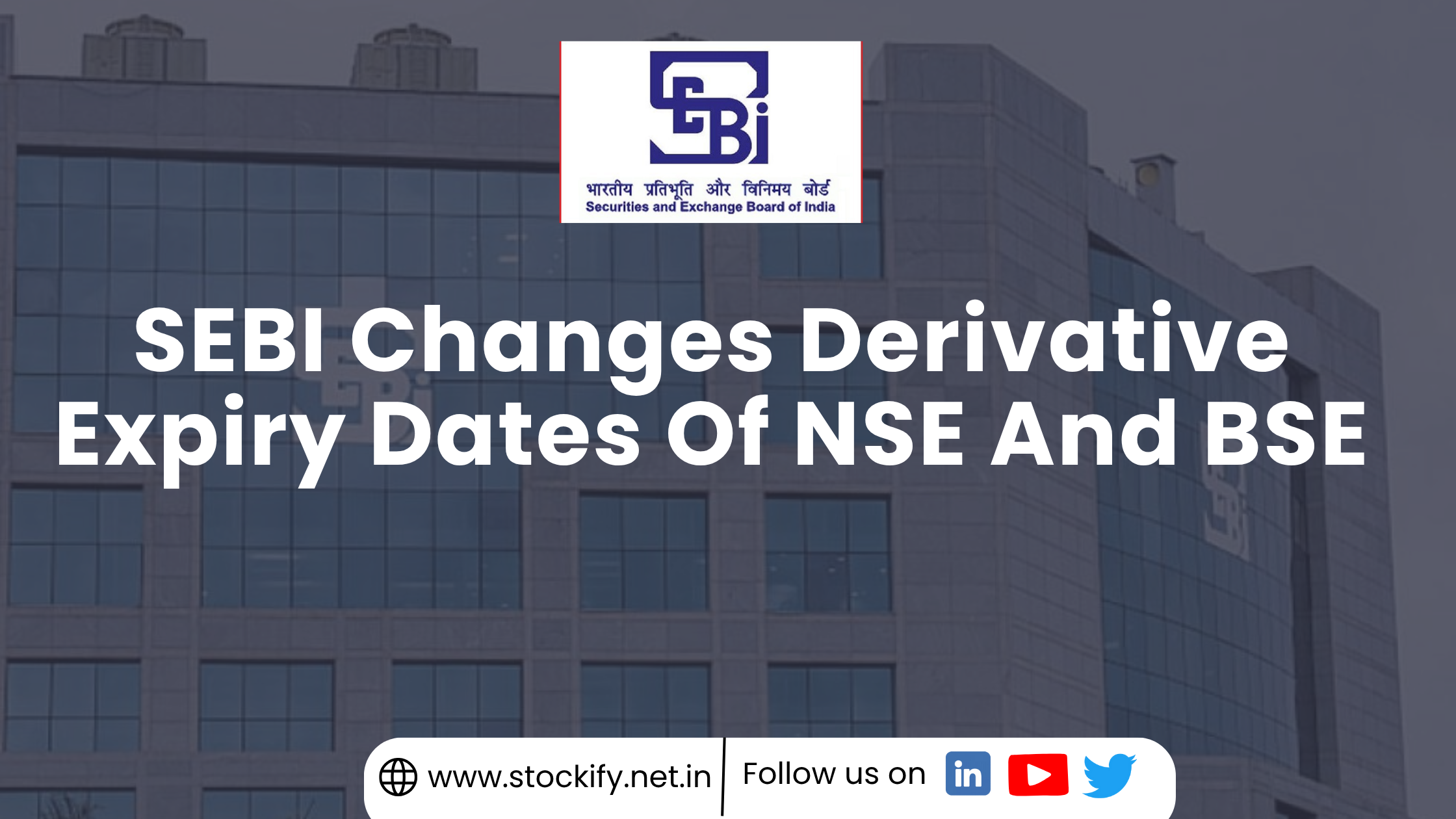Table of Contents
Buy/Sell Your Unlisted Shares
Submit the details below to share a quote.
The Securities and Exchange Board of India(SEBI) has approved the change of expiry days for derivatives on the NSE and BSE. On May 25, the market regulator announced that derivatives will expire only on either Tuesday or Thursday. SEBI asked both the exchanges to choose one day respectively.
According to the SEBI approval, derivative contracts of NSE will expire on Tuesday(shifting from Thursday expiry). Contrary to this, BSE derivative contracts will expire on Thursday( shifting from the current Tuesday expiry). The current expiry cycle will remain valid till 31st August.
This is a shift from current derivative systems, where exchanges were free to choose their expiry dates.SEBI believes this change will reduce concentration risks and avoid possibilities of trading spikes around multiple expiry dates, bringing consistency to the whole system. This will also prevent excessive expiry day trading, which could hurt investors and destabilise the market.
“NSE contracts are more liquid and are preferred by market participants. If NSE has expiries on Tuesdays, the premium just ahead of the expiry day will be lower compared to the beginning of the cycle. This will make it cheaper for participants to trade NSE contracts in the days leading up to expiry. NSE may see much more activity than what we see now,” said Sriram Krishnan, chief business development officer at NSE.
“Since NSE requested Tuesdays, in the overall interest of the market, we have taken Thursdays. Market share and volumes are influenced by multiple factors. At this point, it is not possible to base our analysis solely on one factor. Traditionally, Thursday has been the day of expiry for the Indian market for a very long time,” said Sundararaman Ramamurthy, managing director and chief executive officer of BSE.
“With BSE moving its expiry to Thursday (currently Tuesday), it is expected to lose ₹1,500–1,800 crore in average daily premium turnover (ADPTV). This amounts to an approximate annualised pre-tax profit impact of ₹160 crore (7.8 per cent of 2026–27 estimated/FY27E adjusted profit after tax). Our 2025–26E (FY26E)/FY27E ADPTV estimates of ₹13,400 crore/₹15,300 crore are below the current market trend of FY26 to date ADPTV of ₹15,500 crore. Hence, even if we factor in the impact, our estimates will not change significantly,” said analyst Madhukar Ladha of Nuvama Research.





















































